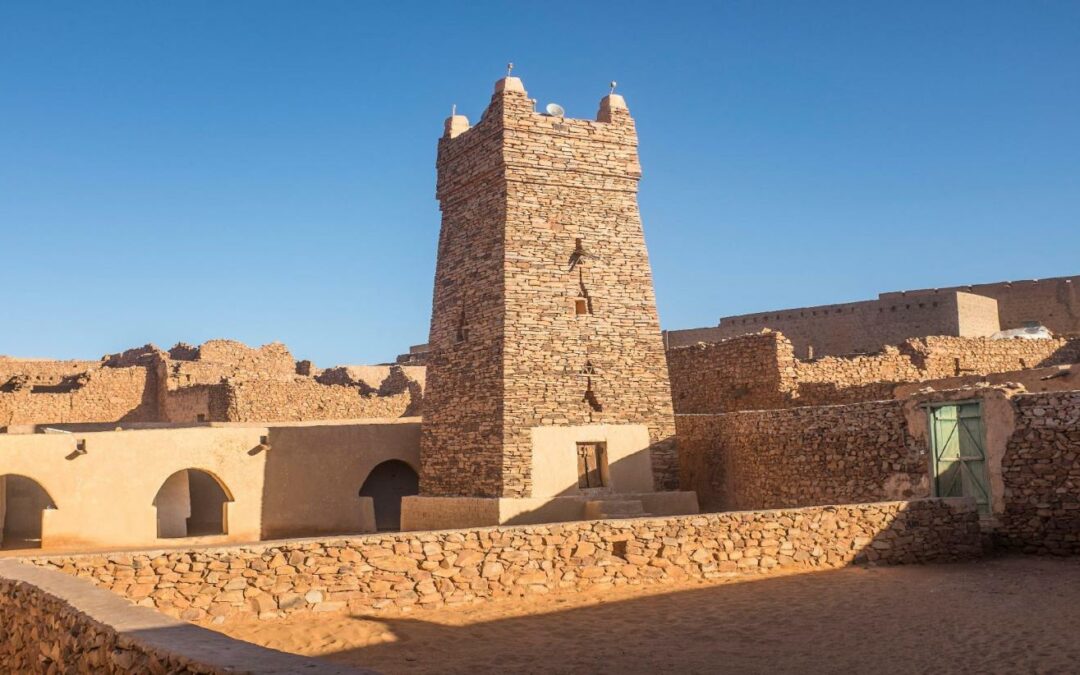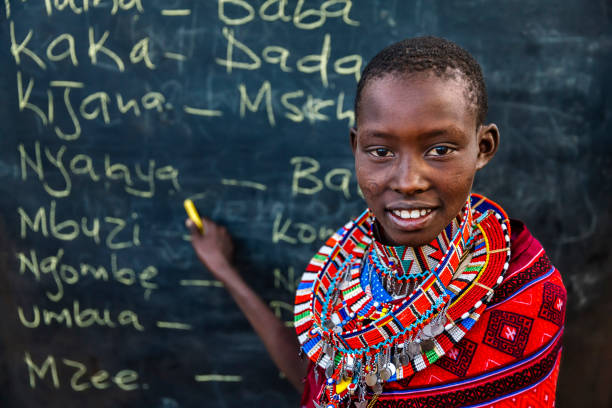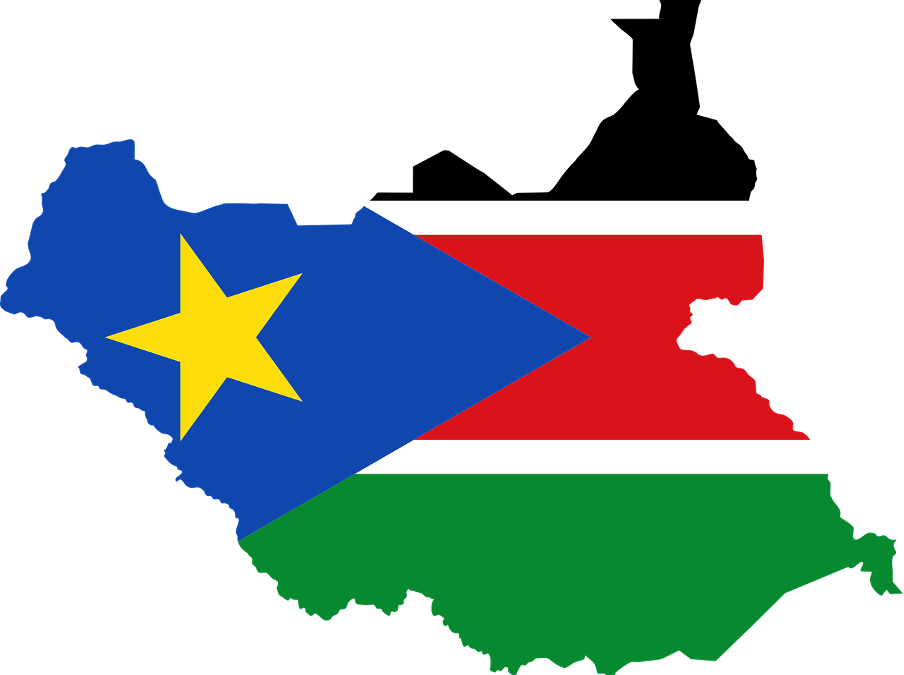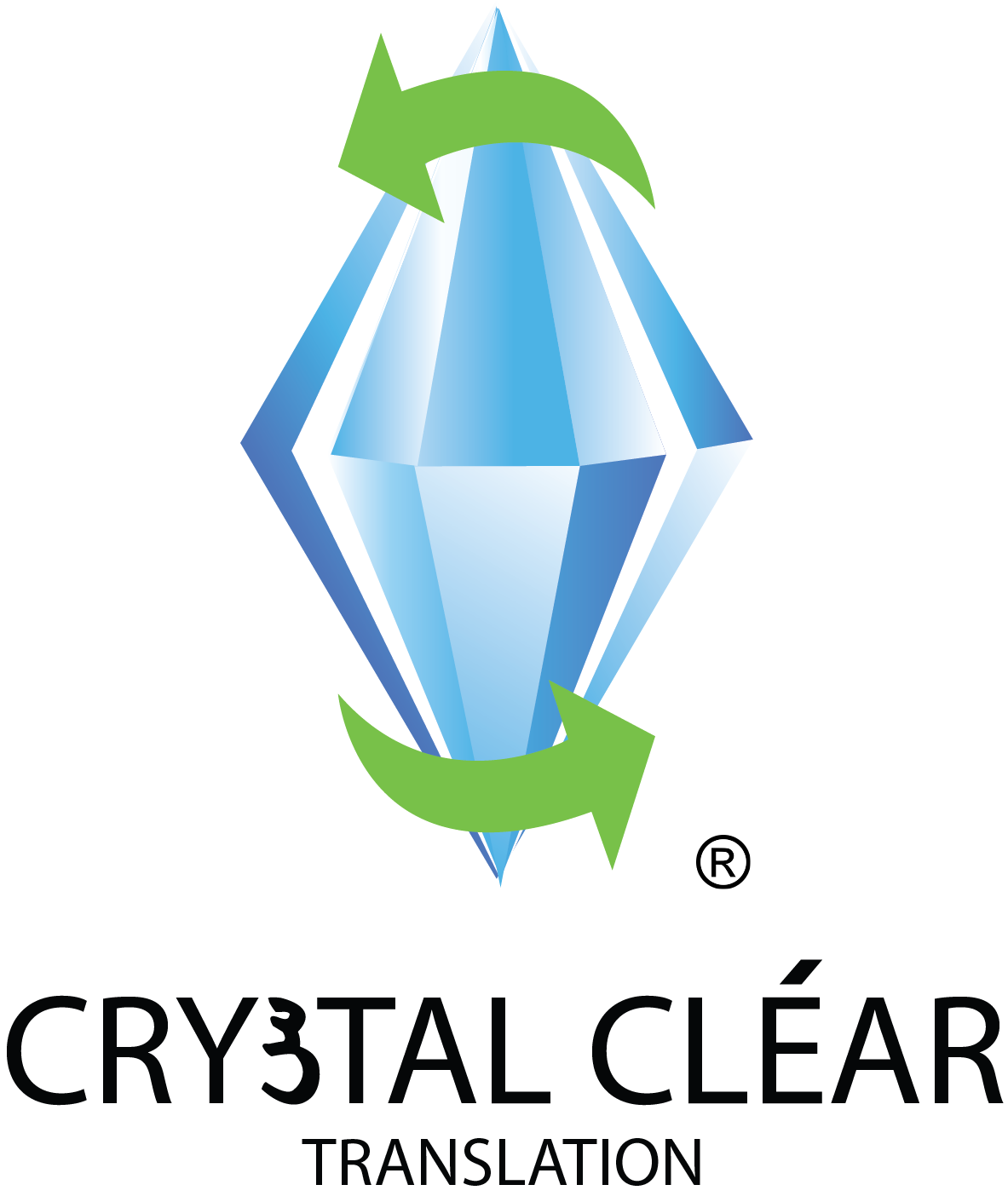
by Hammed Sonny | Sep 18, 2023 | Africa, Arab, Multilingualism
The sovereign state of Mauritania lies within Northwest Africa. With a strong cultural history and a population of 4.4 million, a wide variation of languages is spoken throughout the region; including larger official languages, smaller regional languages and dialects that apply to certain ethnic groups.
The simplest way to explore the rich lingual background of the state is to break it down into sub-categories; Afro-Asiatic, Niger Congo, Berber and foreign languages. Each dialect has an important role within Mauritania.
Afro-Asiatic languages
The languages in this family play a vital role within the state, with Arabic being considered an official language.
Arabic
Arabic is the official language of Mauritania. Typically, the modern standard variation, Arabic is used widely within the government and media. A great proportion of the Mauritanian population are Muslim- meaning that Arabic is heavily utilised and recognised by the majority of citizens.
Berber
The Berber language dates back to earlier times, when at this point it was used widely. Since then, it tends to only be spoken within southern Mauritania. In this day, there are thought to be only 200 speakers of Berber language in the region.
Niger-Congo Languages
Throughout Mauritania, there are small ethnic clusters who speak their own ethnic languages. A lot of these come under the umbrella of the Niger-Congo language family. These include Wolof, Soninke, Bambara and Pulaar.
French
French is an incredibly popular language throughout Mauritania. There are approximately 705,000 speakers within the state. A large proportion of the population are able to understand French to a certain degree, or even speak it natively. The use of French dates to the French colonial rule in Mauritania.
Final thoughts
Within Mauritania the rich cultural background makes for a versatile and varying array of languages. The language spoken natively may depend upon the region you are in, however, most of the population are able to decipher the use of Arabic- meaning this is the lingua franca of Mauritania.
Do you require our services?
Should you need an Arabic interpreter or translator, visit Crystal Clear Translation for a quote.

by Hammed Sonny | Sep 12, 2023 | Africa
Swahili is an extremely extensive language, in order to understand it further, we have put together a guide to aid your understanding.
Swahili is a language native to the Swahili people and part of the Bantu language family.
Where is Swahili spoken?
Spanning across a vast string of regions, Swahili has official language status within Kenya and Tanzania. In addition, it is widely spoken within Uganda, and the Democratic Republic of Congo and serves as a national language. The influence of this language extends even further with Burundi, Rwanda, Mozambique, Northern Zambia and Malawi having speakers in smaller proportions.
How many people speak Swahili?
It is estimated that between 50-150 million people speak the language either as a native tongue or a second language. The exact number is not known, it varies greatly and is a matter of debate.
People who speak Swahili as their soul language are known as Waswahili people.
Swahili Origins
Research has found that approximately 20% of the Swahili language consists of loan words. Many these are taken from Arabic, and interestingly enough the name ‘Swahili’ is in fact Arabic in itself. It first came about as a language used by Bantu tribes and from then on it spread and evolved throughout many east African regions.
It’s not just Arabic that Swahili is influenced by it has been discovered that dialects such as Malay, Portuguese and Persian also have influence.
The main Swahili dialects
There are 15 dialects within the language, however only 3 of these are considered main dialects. They vary based upon region. Standard Swahili is based upon Kiunguja .
Kiunguja- Spoken in mainland Tanzania and Zanzibar.
Kimvita- Spoken in Kenya and Mombasa.
Kiamu- Spoken on the island of Lamu and surrounding areas.
Day to day uses
Dependent on where you find yourself, the uses of Swahili differ. For instance, places such as Kenya, Tanzania and Congo use the language for business and administration purposes- meaning that it is considered a working language. It is important to note that many of these regions also used Swahili along with English and French in educational settings.
Some interesting facts about the Swahili language
- It is thought that Swahili is the easiest African language for English speakers to learn- this is because like English, Swahili is a language without lexical tone.
- There is a hybrid English/Swahili dialect called ‘Sheng’- it originated within Nairobi amongst youths.
- The first Swahili script dates back to the 17th century.
Final Thoughts
We have discovered that Swahili has a rich cultural history, which spans across multiple regions. It was first introduced as a trade language and later evolved into an extremely widely spoken language throughout many regions of Africa. Although, we cannot be sure of the exact number of speakers, we can be certain that it will continue to evolve, and it will be kept rife by its ample speakers.
Do you require our services?
Should you require a translation or interpretation services, visit Crystal Clear Translation for a quote.

by Hammed Sonny | Jul 28, 2023 | Interpreting, Multilingualism
A bilingual person can speak two languages with equal fluency, and you might think that this ability would make a bilingual person the natural choice for working in interpreting and translation services. So, should you hire a bilingual person for interpreting and translation services instead of a professional?
It helps for a translator or interpreter to be equally fluent in the languages with which they are working, but the necessary skills which are required for someone to work as a translator or interpreter are more than just the ability to speak two languages. A good translator or interpreter must have a thorough education in other languages, an awareness of cultural contexts, and will also have professional training on translation and interpreting techniques.
Cultural Awareness and Specific Subject Knowledge
Translators and interpreters are required to be completely culturally aware and must have knowledge of the intricacies of different languages such as different dialects, idioms, grammatical rules, or specific cultural contexts. A bilingual speaker of a language might have knowledge of basic vocabulary and can easily converse with a native speaker of another language. However, interpreters and translators have skills that go beyond just being able to have basic conversations in another language. They are fully immersed in the different aspects of a specific language and can convey fully what is being communicated, whereas someone who is bilingual might not be able to discern and adequately communicate what the client is trying to convey.
Professional Training and Practice
In addition to this, interpreters and translators have been professionally trained and have gained consistent regular experience of working in their respective field. In other words, a professional interpreter would know how to maintain the flow of conversation and provide the client with a satisfactory result, and a professional translator must be able to retain the original essence of the work that they are translating. Whilst a bilingual person may be able to read, write and communicate in another language, they would not have the experience that a professional interpreter or translator would have of working for clients to deliver satisfactory work which requires a thorough knowledge of technical skills.
Voice Modulation and Body Language
Professional translators and interpreters have an in-depth knowledge of voice tonality, modulation, and body language. When interpreting a client’s speech, or working on transcription, a professional will be notice non-verbal elements, such as changes in pitch, pauses, tone or even the speed with which the client speaks.
The elements of personal communication consist of more than just the spoken word. In fact, Professor Albert Mehrabian of the University of California, Los Angeles (UCLA), suggested that 7% of personal communication consists of the spoken word, 38% of voice and tone, and 55% is made up of body language. Consequently, the non-verbal aspects of communication must be communicated as much as, perhaps more so than the spoken word. A bilingual speaker might only be focused on the communication of spoken word and may not have the necessary listening or visual skills to be able to communicate the totality of what the other speaker is expressing.
Certification and Accreditation
In addition to these points, professional translators and interpreters will have accreditation and certifications to prove their ability to work in the different industries that require interpreting and translation services. For instance, many translators and interpreters are members of professional bodies such as the Institute of Translation and Interpreting (ITI), the American Translators Association (ATA), or the Chartered Institute of Linguists (CIOL). Additionally, professionals may also have completed the ISO 17100:2015 Standard for Translation certification, providing further proof of quality translation services.
In Conclusion
Evidently there is more to being a good translator or interpreter than simply being bilingual. There is a vast amount of knowledge that a translator or interpreter must have, be it the intricacies of grammatical rules, knowledge of legal practices or medical terminology, or historical or cultural contexts of a language. They must also be able to retain the core message of what they are translating or interpreting and must fully practice their abilities. If you require translation or interpreting services in any language, you can get a quote here from Crystal Clear Translation.

by Hammed Sonny | Jul 13, 2023 | German
You may be inclined to think the German language is exclusively spoken in Germany. But the truth is there are many variations of the language present in other countries too.
Of course, standard German is the native language of Germany, but two other countries who have adopted their own variation of this language are Switzerland and Austria.
Throughout all the countries it is present in, it is estimated that 100 million people use German as their native tongue, and 80 million as their second.
So, this leaves us wondering how are Swiss, Austrian and standard German different from each other, and what makes them the same?
Standard German
German is mainly prevalent throughout central Europe. It is the official language of Germany and one of the most widely studied languages in the world. The sheer volume of native German speakers spans across a multitude of countries.
According to various sources, the earliest example of written German dates to as early as the 8th century. It has since evolved considerably, using the Latin script writing system.
Austrian German
Austrian German is a variation of German spoken throughout Austria. It is considered the lingua franca of the country.
One difference to note between Austrian and standard, is that there are some word differences. Below are some examples, to enable us to see the differences in action.
German: die Tomate
Austrian: der Paradeiser
English: Tomato
German: die Kartoffel
Austrian: der Erdapfel
English: Potato
A further grammatical difference is that Austrian German omit certain letters from standard German phrases. For example: Ich Bin becomes I Bin (I am).
Even though there are some differences, you may find that some typical German phrases remain the same. Despite the grammatical differences, Standard German and Austrian German remain mutually intelligible, meaning that Germans can understand Austrians and vice versa.
Swiss German
Swiss German is the variation of German that is spoken throughout Switzerland. We should note that unlike Standard and Austrian, Swiss German incorporates various different dialects. They are simply all grouped into the same language category.
Of course, there are many differences between this variation and the others. Swiss German is strongly influenced by English, having borrowed many words from the language. In addition, French is a further language which strongly influences Swiss dialects.
Similar to Austrian German, Swiss German also uses standard German phrases from time to time, meaning that it is not completely different.
Final Thoughts
From everything we have found out about the three dialects, we can see that Standard, Austrian and Swiss are three separate dialects spoken in different countries. Although they are different in many ways, the influence of early German is present throughout all three.
Do you require our services?
If you require a translation or interpretation service, visit Crystal Clear Translation for a quote.

by Hammed Sonny | Jun 17, 2023 | Africa
Part of the Nilo-Saharan language family, Dinka, also known as Jieng, is a Western Nilotic language spoken primarily by the Dinka people. In total, there are 1.35 million speakers of the Dinka language, primarily in South Sudan. In South Sudan, the official language is English, but Dinka is one of the recognised national languages.
There are also Dinka speakers who live in Kenya, Uganda, the United States, and Australia. Dinka is a macrolanguage, meaning that it comprises many different dialects and subdialects, such as Rek, Agar, Padan, and Bor, which have different degrees of mutual intelligibility.
Dialects of the Dinka Language
There are four major dialects of the Dinka language, known as Rek, Agar, Padan and Bor. The Bor dialect is comprised of several subdialects known as Hol, Nyarweng, Twic East, and Bor South. Geographically, the Bor dialect, also known as Southeastern Dinka, is spoken to the east of the White Nile River, in an area of South Sudan known as Jonglei State. To the north of Jonglei State is the Upper Nile state, which ceded from Sudan to become part of South Sudan in 2011. In this area, the main dialect spoken is the Padan dialect, also known as Northeastern Dinka, which features the subdialects of Ruweng, Rut, Dongjol, Ngok, Ageer and Abiliang.
The Agar dialect, also known as South Central Dinka, comprises the subdialects of Gok, Aliap, Ciec, and Atout. This dialect is spoken in the Lakes State of South Sudan and its capital, Rumbek. Rek, also known as Southwestern Dinka, is spoken to the west of the Bahr el Ghazal River, in the cities of Wau, Aweil, and Abyei. The Rek dialect is makes up several subdialects, namely Malual, Twic, Ngok, and Luac.
Linguistic Features of the Dinka Language
The Dinka alphabet uses a Latin writing system and consists of 27 letters. Of those 27 letters, there are six vowels, “â, ë, ï, ö, ɛ̈, ɔ̈”, which are also known as “kit yäu”. A lot of words in the Dinka language are monosyllabic, meaning that they consist of only one syllable. For example, this can be observed in the sentence “yɛn acȯl waa” (“I call my father”). Most dialects in the Dinka language use a subject-verb-object (SVO) word order, except for the Agar dialect, in which adjectives and numbers are placed after the noun.
The plural forms of words in the Dinka language vary to a great extent. To give an example, some words feature double letters to indicate the plural, such as the word “pal” (“knife”), which becomes “paal” (“knives”). However, some words feature double letters to indicate the singular, and are shortened to indicate the plural. The Dinka word for “hand”, “ciin”, becomes “cin” (meaning “hands”).
Vowels in the Dinka language are often emphasised, as they are marked by an umlaut (¨). This marking of the vowel is also known as diaeresis, which means that a marking, such as an umlaut is used to indicate how a vowel should be pronounced. In the Dinka language, the word “wä”, the Dinka word for “father”, is pronounced as “w-aah”. The word “wä” is marked by an umlaut, as part of diaeresis, to indicate an elongated pronunciation. In addition to this, long vowels in the Dinka language are represented by the doubling of letters. For instance, the word for house in Dinka is “baai”. The double “aa” highlights the elongation of the vowels, meaning that the word is pronounced in a similar way to the English word “bye”.
Key Dinka phrases
- “Muȯth” – Greetings
- “Cï yï ruȯn” – Good morning
- “Looi ëdë?” – How are you?
- “Yïn ka” – Excuse me
- “Yedï” – How much?
- “Yïn ca leec arëëtic” – Thank you very much
In Conclusion
Dinka is an important language in South Sudan, spoken by the Dinka people throughout the country and in many different cities and towns. The Dinka language is truly a diverse language, especially considering the numerous dialects and sub-dialects of the language that are spoken in South Sudan.
If you should require translation or interpretation of the Dinka language, or any language or dialect, you may be interested in the excellent services provided by Crystal Clear Translation. At CCT, we employ many efficient and reliable translators able to navigate the intricacies of many different languages and cultures. Click here for a quote if you should need interpretation or translation services in a multitude of different languages.






